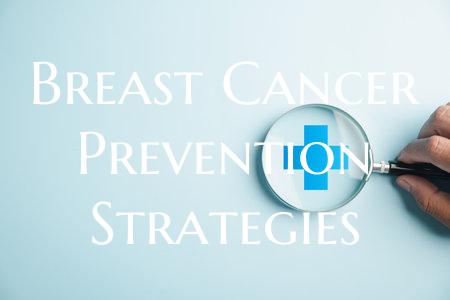
Breast Cancer Prevention Strategies
Breast cancer is one of the most commonly diagnosed cancers in women worldwide. While some risk factors for breast cancer, such as genetic predisposition and aging, are beyond our control, there are several proactive steps that individuals can take to reduce their risk of developing this disease. Implementing effective breast cancer prevention strategies is essential for maintaining overall health and well-being. Below are some important strategies that can help lower the risk of breast cancer:
1. Lifestyle Modifications: Adopting a healthy lifestyle can significantly reduce the risk of developing breast cancer. This includes maintaining a healthy weight, engaging in regular physical activity, limiting alcohol consumption, and avoiding smoking.
2. Healthy Diet: Consuming a balanced diet rich in fruits, vegetables, whole grains, and lean proteins can support overall health and may help reduce the risk of breast cancer. Some studies suggest that certain foods, such as cruciferous vegetables, berries, and fatty fish, may have protective effects.
3. Regular Exercise: Staying physically active can lower the risk of breast cancer. Aim for at least 150 minutes of moderate exercise or 75 minutes of vigorous exercise per week. Exercise not only helps in maintaining a healthy weight but also improves overall well-being.
4. Breastfeeding: Breastfeeding has been associated with a reduced risk of breast cancer. Whenever possible, try to breastfeed your baby, as it offers health benefits for both the mother and the child.
5. Breast Self-Exams and Screening: Performing regular breast self-exams can help in identifying any changes in the breast tissue early. Additionally, adhering to routine mammograms and other recommended screening tests can aid in the early detection of breast cancer, when treatment is most effective.
6. Hormone Therapy: Limiting the use of hormone replacement therapy and birth control pills that contain both estrogen and progesterone can reduce the risk of breast cancer. If these medications are necessary, discuss the risks and benefits with your healthcare provider.
7. Genetic Counseling and Testing: Individuals with a family history of breast or ovarian cancer may benefit from genetic counseling and testing. Knowing your genetic risk can help guide preventive measures and early detection strategies.
Remember, while these strategies can help reduce the risk of breast cancer, they do not guarantee prevention. It is essential to consult with a healthcare provider for personalized recommendations based on your individual health history and risk factors. Early detection and proactive lifestyle choices play a crucial role in promoting breast health and well-being.